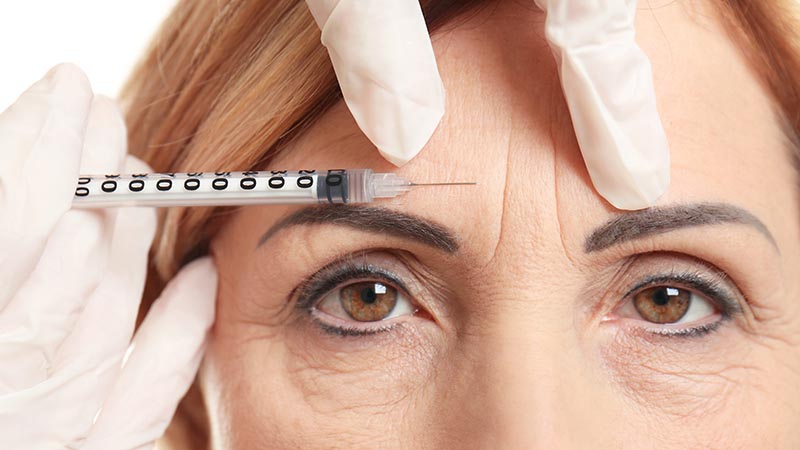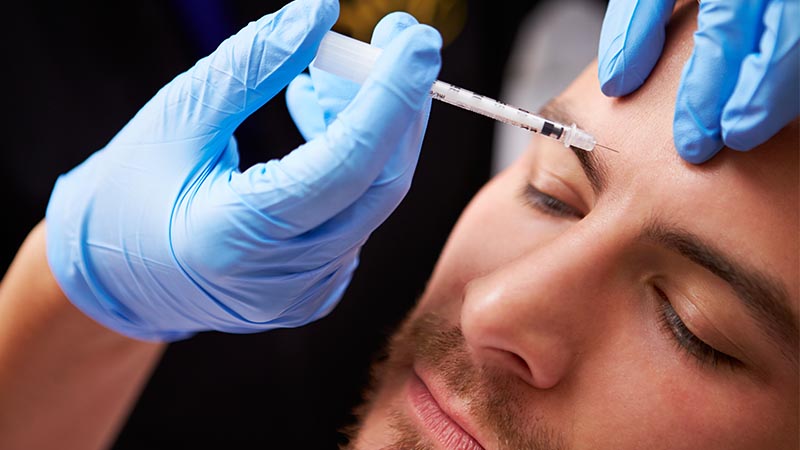If you’re thinking about getting Botox injections, or you’re just intrigued to learn more, here’s what you need to know about this popular cosmetic procedure. We’ll also reveal where you can get Botox in Hong Kong!
Along with an unhealthy addiction to K-Dramas, or a secret dim sum habit, Botox used to be a subject discussed only in hushed tones. Today, cosmetic procedures are common and Botox is the most popular non-surgical aesthetic treatment in the world. Despite its prevalence, Botox doesn’t come without risks so it’s essential to weigh up all the facts before you proceed.
What is Botox?
Botox is a trade name for the active drug Botulinum toxin made by the company Allergan. (There are other forms of Botulinum toxin including Dysport and Xeomin, but Botox is most widely used, so we’ll stick with it here). Botulinum toxin is actually a bacteria that causes a type of food poisoning called botulism. It was initially used in the 1980s to treat muscular disorders of the eye. Fun fact: it can also help alleviate the symptoms of migraines, leaky bladders, excess sweating and other (unglamorous) medical conditions.
Why use Botox?
Botox is most frequently used for anti-ageing by improving the appearance of facial lines and furrows. It works by blocking nerve impulses and temporarily paralysing the muscles that cause wrinkles. This in turn keeps skin looking younger and refreshed, and tricks the world into thinking you’ve had a full eight hours’ sleep when you only snatched four. Effects can last from three to 12 months so you’ll always need to top up.
How is Botox administered?
When used for cosmetic purposes, receiving Botox is classed as a non-surgical treatment. Your practitioner will use a micro-needle to inject tiny amounts of botulinum toxin directly into your target area – most commonly frown lines on the forehead, crow’s feet around the eyes, crinkles at the corners of your mouth and the glabellar lines (the two lines between your eyes that make you look angry when you’re not). A skin-numbing topical anaesthesia will be administered throughout so you should hardly feel a thing. There is little or no downtime, but you should avoid touching or rubbing your skin. It takes 24 to 72 hours for botulinum toxin to take effect and results are usually visible in eight days.
What are the side effects and risks of Botox?
The risks of Botox injections are small if they’re carried out correctly by a suitably qualified practitioner. After the treatment, you may experience a mild headache or flu-like symptoms for the first 24 hours. Some bruising or swelling can occur where the needles went into the skin, too. A more serious list of side effects can be found here; contact your doctor right away if any of these occur post-procedure.
Although widely applied, it’s wise to remember that botulinum toxin can lead to a rare but life-threatening illness called Botulism. Always speak to your practitioner beforehand about possible complications. Also, monitor yourself responsibly after Botox injections have taken place. Do note, too, that Botox shouldn’t be used in pregnant or lactating women, or by those who’ve had previous allergic reactions to the drug or its ingredients.
Where to get Botox in Hong Kong?
On average, Botox in Hong Kong costs between HK$3,000 and HK$10,000 per treatment and can only be carried out by a registered plastic surgeon, dermatologist or general practitioner. Here’s a list of where to get Botox in Hong Kong. Always enquire about the professional qualifications and relevant experience of your doctor before you go ahead. Lastly, the legal use of botulinum toxin in Hong Kong must be registered by the Pharmacy and Poisons board. If in doubt, check out the website here, along with the Department of Health Drug Office. Feeling informed and confident about your procedure is key. After all, peace of mind will remain with you long after the Botox has faded.
This article was independently written by Expat Living and is not sponsored – it is informative only and not intended to be a substitute for professional medical advice, diagnosis or treatment, so should not be relied upon for specific medical advice.
Read more on men’s and women’s health in our Health & Fitness section.







